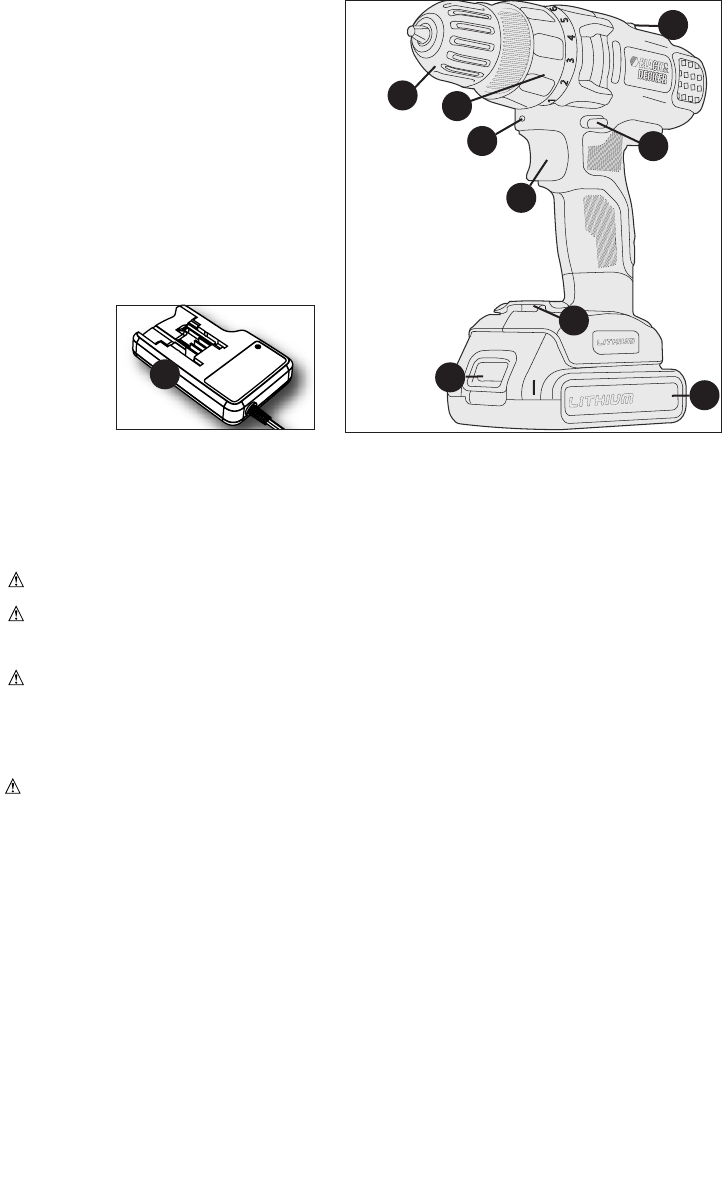
5
FUNCTIONAL DESCRIPTION
1. Variable speed switch
2. Forward/reverse button
3. Torque adjustment collar
4. Keyless chuck
5. Dual range gearing
6. LED work light
7. Battery
8. Battery release button
9. Charger
10. Screwdriver bit holder
9
IMPORTANT SAFETY INSTRUCTIONS FOR BATTERY
CHARGERS
SAVE THESE INSTRUCTIONS: This manual contains important safety instructions for
battery chargers.
• Before using charger, read all instructions and cautionary markings on charger, battery
pack, and product using battery pack.
WARNING: Shock hazard. Do not allow any liquid to get inside charger.
CAUTION: Burn hazard. To reduce the risk of injury, charge only designated Black &
Decker batteries. Other types of batteries may burst causing personal injury and
damage.
CAUTION: Under certain conditions, with the charger plugged in to the power supply,
the charger can be shorted by foreign material. Foreign materials of a conductive nature
such as, but not limited to, steel wool, aluminum foil, or any buildup of metallic particles
should be kept away from charger cavities. Always unplug the charger from the power
supply when there is no battery pack in the cavity. Unplug charger before attempting to
clean.
WARNING:
• DO NOT attempt to charge the battery pack with any chargers other than the ones
in this manual. The charger and battery pack are specifically designed to work together.
• These chargers are not intended for any uses other than charging designated
Black & Decker rechargeable batteries. Any other uses may result in risk of fire,
electric shock or electrocution.
• Do not expose charger to rain or snow.
• Pull by plug rather than cord when disconnecting charger. This will reduce risk of
damage to electric plug and cord.
• Make sure that cord is located so that it will not be stepped on, tripped over, or
otherwise subjected to damage or stress.
• Do not use an extension cord unless it is absolutely necessary. Use of improper
extension cord could result in risk of fire, electric shock, or electrocution.
• An extension cord must have adequate wire size (AWG or American Wire Gauge)
for safety. The smaller the gauge number of the wire, the greater the capacity of the
cable, that is 16 gauge has more capacity than 18 gauge. When using more than one
extension to make up the total length, be sure each individual extension contains at least
the minimum wire size.
1
3
2
4
8
10
5
7
6


















